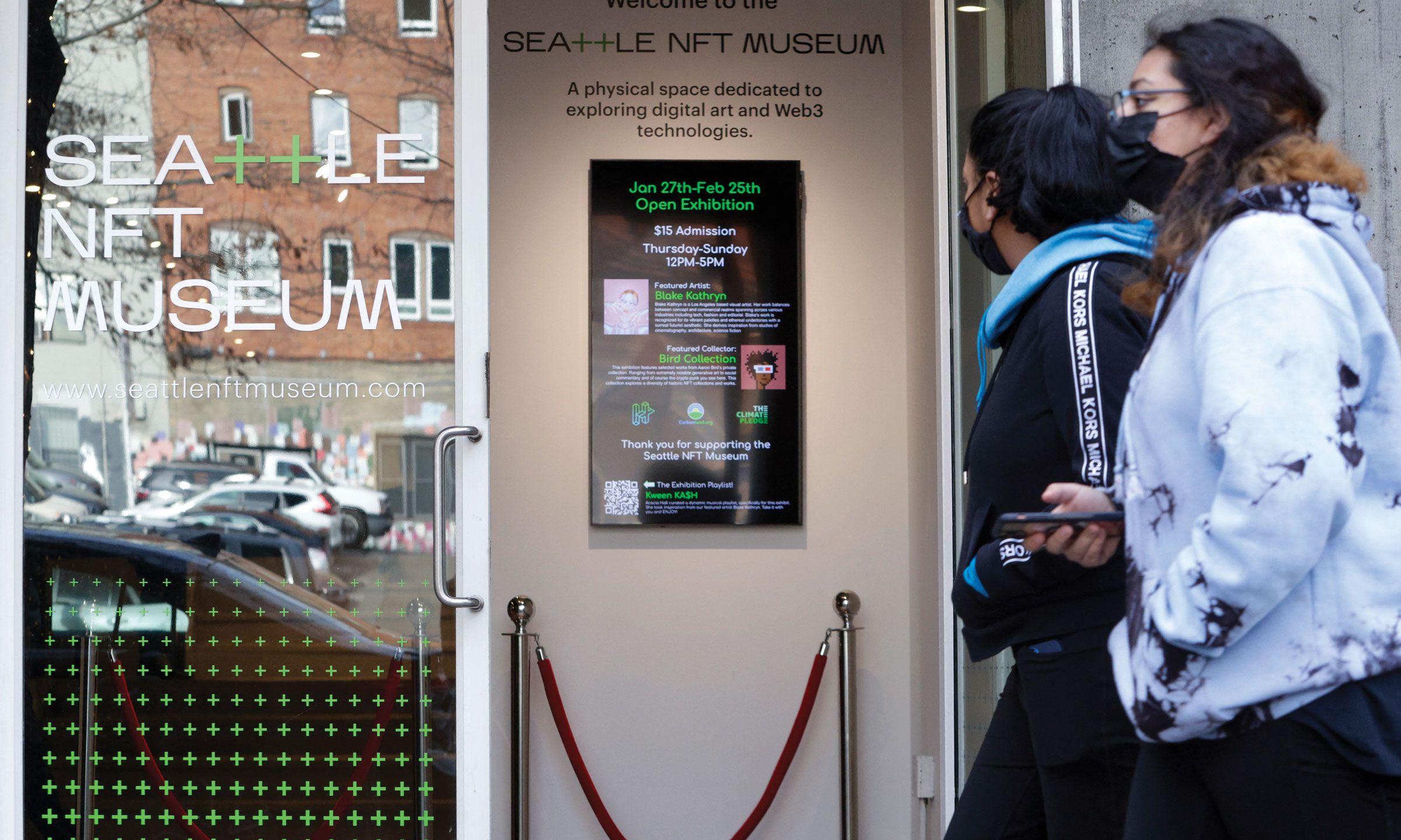Pioneering state: the world’s first NFT museum opened in Seattle, Washington, earlier this year Photo: Jason Redmond/AFP via Getty Images
Washington state added NFTs (non-fungible tokens) to the list of properties subject to its sales and use tax provisions in July, making it the first American state to do so—though it is not likely to be the last.
Sales taxes apply to the purchase of all goods or services by consumers and businesses, while a use tax is applied on state tax returns where no sales tax has been paid, such as for goods and services from out-of-state vendors, and that amount is equal to the sales tax in the state where the items were sold. The volume of NFT sales in the US and worldwide is anyone’s guess, but the blockchain tracking company NonFungible.com estimated $17bn in NFT transactions worldwide in 2021, and others put that number at $25bn.
“In the past several years, states have seen the prices for NFTs soar,” says the New York lawyer Amelia K. Brankov. All that money attracts revenue officials’ interest, and “some states are focusing in on the taxability of NFT sales”. In Washington, the sales tax rate is 6.5%, but that may be the only thing that is clear-cut about this process.
Taxing NFTs is complicated by uncertainty over where they are “sourced”, which can be a tricky question with an NFT sale, which is typically conducted through a transfer of the asset to a digital wallet, not a physical address. Many digital marketplaces exist and some states currently require them to collect a sales tax, but compliance has been inconsistent. If a marketplace fails to collect the tax, the buyer may be liable for it.
Beyond that, some states recognise digital products like NFTs as taxable, while others do not, making the determination of whether or not taxes are owed confusing. At the time of going to press, 32 states have rules permitting the taxation of digital products, including Pennsylvania, Texas and Washington, while 12 specifically exempt these items, including California, Florida and New York. Agustin M. Barbara, a managing partner of the Miami-based firm The Crypto Lawyers, says many of those 32 states “already have the statutory framework in place that would allow for the taxation of NFT sales, even though the statutory language does not explicitly mention NFTs”.
There is less confusion at the federal level, as the Internal Revenue Service (IRS) announced in 2014 that it would treat cryptocurrencies as property, so that every time an owner of cryptocurrency uses it, that person would pay a tax on any gains. Additionally, the 2018 Supreme Court decision in South Dakota v. Wayfair—which ruled that businesses without a physical presence in a state with more than 200 transactions or $100,000 of in-state sales must collect and remit sales taxes on transactions in the state—is likely to be applied to NFT sales platforms.
In the coming months, the IRS is expected to issue guidelines for federal taxation of digital assets, a revenue-raising provision of the Biden administration’s infrastructure law that was enacted last autumn. This provision requires brokers of digital products, such as sales platforms, to obtain physical addresses and social security numbers of buyers and sellers, and these brokers will have to submit information returns (1099 forms) that users of their sites would need when filing personal tax returns.
The ability of Washington, or any other state, to enforce sales taxation on NFTs will depend on the existence of 1099 forms, says Rosemary Ringwald, the national head of art planning at Bank of America’s private banking division. “Washington State is blazing a new trail in this, but it is inevitable that other states are going to follow suit.”
Author
Administraroot


